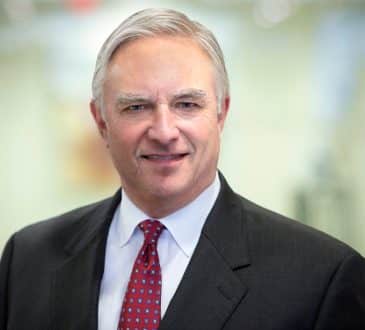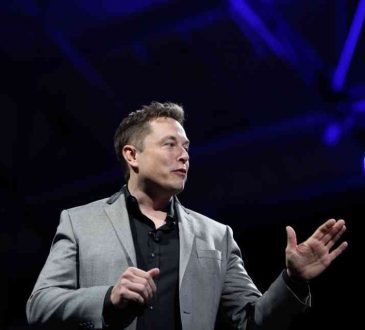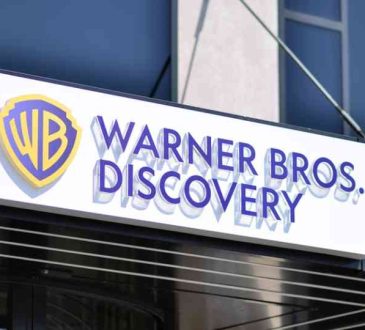The Next Recession is Coming: Is Your Workforce Prepared?

The news about the economy has been mostly positive over the last year. Unemployment hit its lowest rate in 50 years as we continued to recover from the 2008 Recession, and payroll employment grew by 130,000 in August. Yet despite this, the threat of the next recession is real with the warning signs in plain sight.
The first true indicator of a looming economic downturn came in August 2019 when the yield curve inverted to its widest level since 2007. This part of the curve has shown a 100 percent success rate of predicting future recessions since 1950. Though the Great Recession is remembered as a housing and mortgage crisis, the next recession might have more to do with automation and how we adapt to the changes it will bring to the workplace.
A 2018 study found that within routine occupations, 88 percent of job loss since the 1980s had occurred during periods of recession, which triggered the acceleration of automation to replace laid-off talent. During the post-Great Recession recovery, open roles were being replaced by automated tech, requiring job seekers to be more skilled than ever to find work.
There’s no question that automation is a viable solution for open jobs but we can’t forget that the human element is what truly makes companies thrive over the long-term. With some experts saying the next recession will come as soon as next year, it’s time corporations put plans in place to help them hire and retain skilled workers after the dust settles.
Upskill your workforce.
Businesses must understand that automation can never fully replace employees, but they are coming for a lot of jobs that can be made more efficient, both financially and in reduced errors, that are currently held by the human workforce. This is because machines are good at doing the same, repetitive tasks every day. They are less adept at spur-of-the-moment problem-solving and coming up with creative solutions. If humans are to compete with the automation revolution, they need to be trained to offset the skills shortage brought about by said revolution.
With that in mind, it is imperative that companies start to invest in skills training– companies like IBM, Amazon, and Accenture have already started doing this. This is our main focus at the nonprofit I founded, Workforce Opportunity Services (WOS), where we work with corporations such as Prudential Financial, Automobile Club of Southern California, and United Rentals to meet their employment needs by connecting them with skilled talent from underserved and veteran populations.
There is value to upskilling your workers. Tech skills are crucial as companies undergo digital transformation, but the emotional and cognitive capabilities we have as humans cannot be overlooked. When things go wrong, or when we need innovation, human oversight is crucial to make quick problem-solving decisions and ensure everything runs smoothly.
There is a reason companies like Google no longer require candidates to have a college degree. They’ve shifted focus, investing in initiatives to train and develop local, underserved talent. Other companies must follow suit if they are to have a resilient post-recession workforce.
Integrate Gen Z and underserved communities.
In order to be resilient throughout a recession, companies must hire from a diverse talent pool to accommodate the next generation of talent. So it’s of no surprise that companies’ attention has been turned to figuring out how to attract and retain Gen Z, the most diverse generation to date, which is expected to revolutionize the business world. It’s a two birds with one stone strategy: cultivating and keeping Gen Z talent on board will increase diversity and innovation, preparing not only for the recession but for the future of work itself.
Competition for Gen Z talent is sure to be intense, which is why businesses must also look to underserved communities like minorities, military veterans and their spouses. I’ve seen firsthand that individuals from these communities have just as much talent as a Harvard graduate—they just need the right training and support. In both Newark, NJ and El Paso, TX, Prudential Financial partnered with WOS to provide that job training. The result? In El Paso, home of the Fort Bliss military base, Prudential Financial has 296 employees. Of those, 86 are veterans and 32 are military spouses.
A recession may soon be on its way but the good news is that there is a clear path for companies to maintain a resilient workforce so long as companies make an investment in tech skills and cast a wider net in their search for talent. This will ensure your company is strong after the next recession and well into the future.
Have you read?
For those who are planning their next business trip, here are the best hotels for business travelers to stay in Belgrade, Ibiza, London, Prague, Munich, Rio De Janeiro, Mexico City, and Chicago.
Add CEOWORLD magazine to your Google News feed.
Follow CEOWORLD magazine headlines on: Google News, LinkedIn, Twitter, and Facebook.
This report/news/ranking/statistics has been prepared only for general guidance on matters of interest and does not constitute professional advice. You should not act upon the information contained in this publication without obtaining specific professional advice. No representation or warranty (express or implied) is given as to the accuracy or completeness of the information contained in this publication, and, to the extent permitted by law, CEOWORLD magazine does not accept or assume any liability, responsibility or duty of care for any consequences of you or anyone else acting, or refraining to act, in reliance on the information contained in this publication or for any decision based on it.
Copyright 2024 The CEOWORLD magazine. All rights reserved. This material (and any extract from it) must not be copied, redistributed or placed on any website, without CEOWORLD magazine' prior written consent. For media queries, please contact: info@ceoworld.biz
SUBSCRIBE NEWSLETTER








